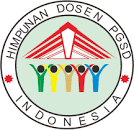Education Between Foreseeing The Future and Requesting Quality and Accreditation
Abstract
Keywords
Full Text:
PDFReferences
Al-Asmari, A. M., & Rabb Khan, M. S. (2014). E-learning in Saudi Arabia: Past, present and future. Near and Middle Eastern Journal of Research in Education, 1(2). 1-11.
Albiladi, W. S. (2022). English teaching and learning in Saudi Arabia: emerging practices and strategies for achieving the educational objectives of the Saudi vision 2030. Journal of Language Teaching and Research, 13(4), 781-789.
Algraini, S., & McIntyre-Mills, J. (2018). Human development in Saudi education: A critical systemic approach. Systemic Practice and Action Research, 31, 121-157.
Ally, M. (2019). Competency profile of the digital and online teacher in future education. International Review of Research in Open and Distributed Learning, 20(2), 302-318.
AL-Momani, M. (2022). Methods of quality assurance in the performance of higher education institutions Jordanian "Theoretical Study". Journal Pendidikan Sosiologi dan Humaniora, 13(2), 467-477.
AL-Momani, M.O (2022). Educational and psychological counseling and its role in achieving the aims of the educational process - an analytical study. Journal Penelitian Humaniora, 23(2), 115-128.
Al-Momani, M.O, & Alrabadi, I.G (2022). Requirements for the application of total quality in the university educational system in the light of the information and technological revolution. Entramado, 19(1), e–9393.
AL-Momani, M., & Rababa, EM (2022). The Reality of the role of guidance and educational media in jordanian educational institutions. Orientación Y Sociedad, 22(2), e052.
AL-Momani, M., & Rababa, E. (2022). Mixed education and quality standard in the university teaching: a theoretical study. Indonesian Journal of Educational Research and Technology, 2(3), 155-174.
AL-Momani, MO, & Rababa, EM (2022). Requirements for the use of e-learning in university education. Global Journal of Information Technology: Emerging Technologies, 12(2), 89–109.
Al-Momani, M. O., & Rababa, E. M. (2022). Training courses and its role on the professional development of teachers in Jordan from the point of view of school principals and its relationship to some variables. Global Journal of Guidance and Counseling in Schools: Current Perspectives, 12(1), 121–137.
AL-Momani, M. O., & Rababa, E. M. (2022). Elements of the effective educational process from the perspective of university students. Contemporary Educational Researches Journal, 12(3), 153–166.
Alrabadi, I. G., & Al-Momani, M. O. (2022). Blended learning in the educational process of the university stage during the corona pandemic.International Journal of Global Education (IJGE), 7(1), 10-19.
Cornali, F., & Tirocchi, S. (2012). Globalization, education, information and communication technologies: what relationships and reciprocal influences?. Procedia-Social and Behavioral Sciences, 47, 2060-2069..
Eilks, I., & Hofstein, A. (2017). Curriculum development in science education. In Science Education (pp. 167-181). Brill.
Hassan, S. T., Batool, B., Zhu, B., & Khan, I. (2022). Environmental complexity of globalization, education, and income inequalities: New insights of energy poverty. Journal of Cleaner Production, 340, 130735.
Muyassaroh, I., & Herianingtyas, N. L. R. (2023). Enhancing Elementary Preservice Teachers’ Scientific Literacy by Using Flipped Problem-Based Learning Integrated with E-campus. Jurnal Pendidikan: Teori, Penelitian, dan Pengembangan, 8(2).
Nailah, C., & Afifa, M. Memahami Komitmen Guru Profesional. Jurnal Pedagogik Pendidikan Dasar, 9(1), 1-7.
Nussbaum, M. C. (2006). Education and democratic citizenship: Capabilities and quality education. Journal of human development, 7(3), 385-395.
Oudeyer, P. Y., Gottlieb, J., & Lopes, M. (2016). Intrinsic motivation, curiosity, and learning: Theory and applications in educational technologies. Progress in brain research, 229, 257-284.
Rababa, EM, & AL-Momani, MO (2022). The reasons for secondary school students dropping out: the teachers' point of view. Tadris: Jurnal Keguruan dan Ilmu Tarbiyah, 7(2), 349-358.
Setiyani, V. D., & Harmianto, S. (2022). Kemampuan guru dalam membuat dan memanfaatkan media video pembelajaran di SD Muhammadiyah Cipete Kabupaten Banyumas. Jurnal Pedagogik Pendidikan Dasar, 9(2), 74-79.
Schrum, L. (1995). educators and the internet: a case study of professional development. computers education, 24(3), 221-228.
DOI: https://doi.org/10.17509/jppd.v10i1.56070
Refbacks
- There are currently no refbacks.
Copyright (c) 2023 Jurnal Pedagogik Pendidikan Dasar

This work is licensed under a Creative Commons Attribution-ShareAlike 4.0 International License.
indexed By :

_page-0001-min.jpg)






.png)

